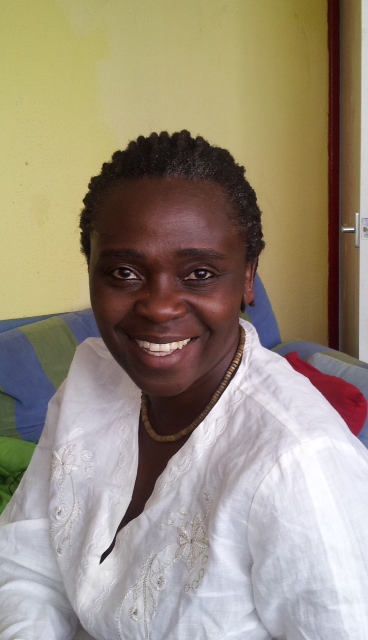Makewana’s Daughters (MD): First of all, congratulations for winning the award of Best Movie (Southern Africa) on Movie Magic. Can you tell us more about what inspired the film?
Joyce Mhango-Chavula (JM-C): Thank you. In 2013 I was privileged to work with a Nigerian writer, Onyeka Nwelue, who came to Lilongwe for the first time and fell in love with the city. He then wanted to do a film titled Lilongwe and wanted me on board but when I read the script I shared with him another angle that would relate to Malawians and he gave me a go ahead to do the film. So when I sat down developing the story I pictured Lilongwe as a strong woman who despite her mistakes still stands strong and finds her voice. So I would say the power of a woman that I encounter every day and everywhere inspired Lilongwe.
MD: Speaking of inspiration, what made you decide to take up film production as a career?
JM-C: After doing theatre for some time, it was time for me to move on and try something new. In 2012 I had worked on 4 film productions in Malawi and Nollywood and I wanted to put to practice what I had learnt from working on those films. Then I felt film making would be an exciting challenge. Above everything my main inspiration came from the absence of women film makers in the industry. That was enough drive for me to take up film as a career.
MD:What usually goes into the production of a film for you?
JM-C: Mainly I just categorise film production in 3 parts: pre-production, production and post production. Each stage is as important and challenging too but for me I want to make sure everything is making sense during pre’-production where I have my story, script, the team, locations and the finances then the other two stages will flow much better.
MD: You are known as both an actress and film producer and film writer. How would you describe the process of being in control of the camera as compared to being under the gaze of the camera? Which do you prefer?
JM-C: I enjoy being in control. It is more challenging for me to work behind the camera because I know the end product will speak a lot about me as a producer than the actor or the other team members so that keeps me on my toes and I love it. But acting is my first love and at this stage for me it’s not as challenging as the former because when I’m acting I just add on what the director wants me to do but when I’m producing I am many things/characters at the same time.
MD: How would you compare film production to other genres e.g. literature?
JM-C: In my opinion I think a lot of work goes into literature compared to film production. Yes, both genres narrate a story but the difference is how it is narrated. It’s easy to convince someone with a film because they see the characters and move along with them but to capture someone’s attention with a book takes a lot. The characters in the book must be as real and must come alive as one reads. So the two fields are different and must just be respected as such.
MD: Are there any particular forms of oral literature that you draw from in your work?
JM-C: Yes. Narratives, Drama and folktales . I try to explore all the other genres and collect bits and pieces to come up with a film script that relates to a particular audience.
MD: Are there any themes that carry a special interest for you?
JM-C: I don’t want to limit myself to particular themes but I love to explore anything that involves issues concerning women/the girl child. I have done 2 films on women so far and still feel I haven’t done anything at all. As an artist I believe that a woman is a hub of our everyday life even though society says otherwise. So even if my films protagonist is male I would want to use him as a positive image that says women and men are supposed to be partners.
MD: Who are your role models?
JM-C: There are people within Malawi and beyond that I respect and whose work I admire. I learn one or two things from their work. For me that’s how far it goes, no role models.
MD: Are there any challenges that you face as a woman in working in the film industry? If so, how do you cope with such challenges?
JM-C: My main challenge is that there is no competition among women in the industry. Most women shun the challenge of being leaders or pioneers in this business, they are contented with just being actors and nothing more. That really bothers me and I am fighting and advocating for more females to rise and lead. There is hope, I believe.
MD: What is a typical day in the life of Joyce Mhango-Chavula?
JM-C: My profession revolves around people because I work with different types of people. It’s either I am working on a commissioned job or I’m planning my next project so I write a lot when I’m home and have meetings with partners. Apart from that I am a wife, a daughter and a mother so I make sure I plan my day accordingly. I always avoid a situation of having more of workload than I can achieve in a day and I always ask God for guidance, He is my rock.

Filming Lilongwe: Interview with Joyce Mhango-Chavula
(Visited 310 times, 1 visits today)



Thank you for such a wonderful write-up of our mother. She was indeed a great woman. Made me tear up remembering the moments we shared. MHSRIEP. Lindani